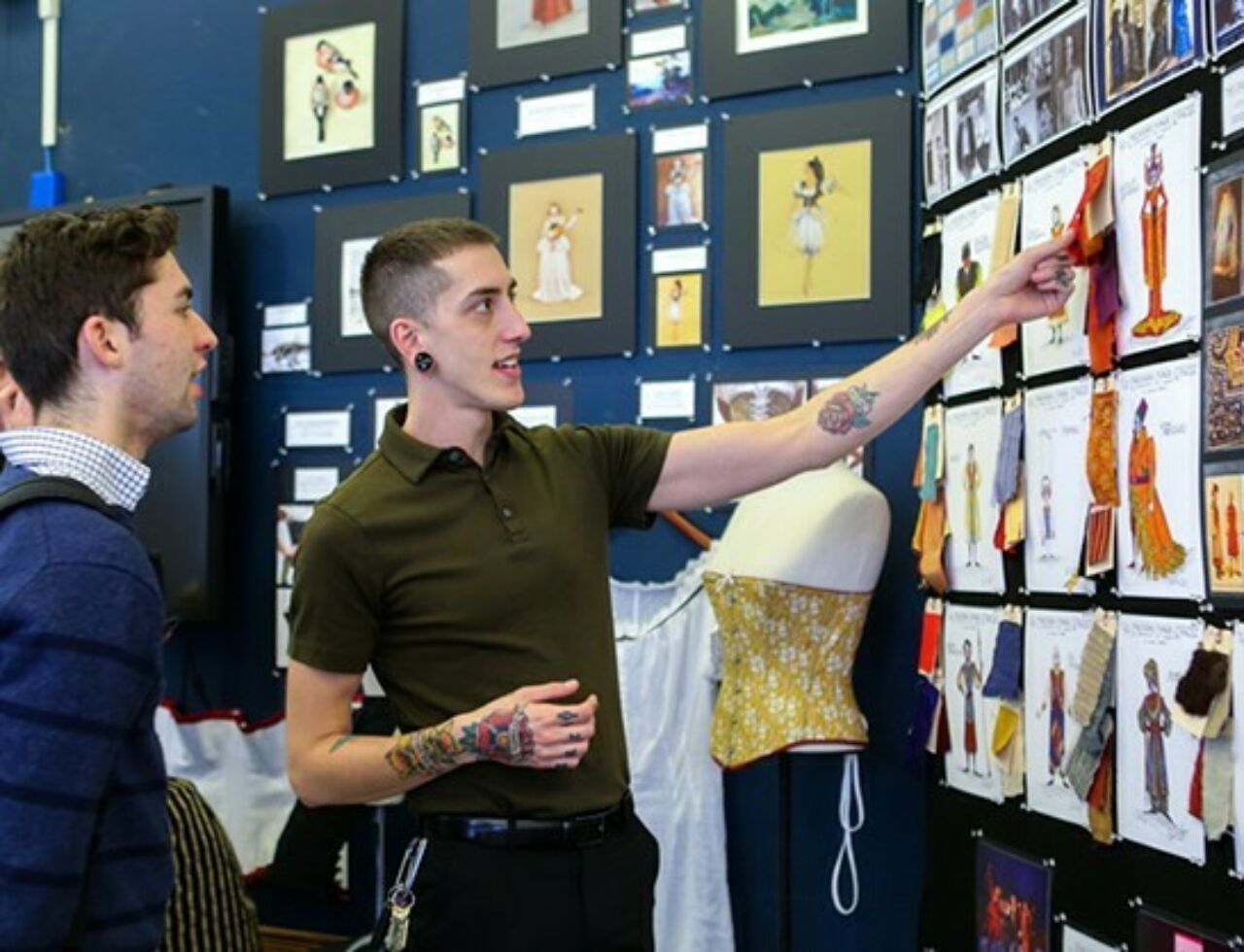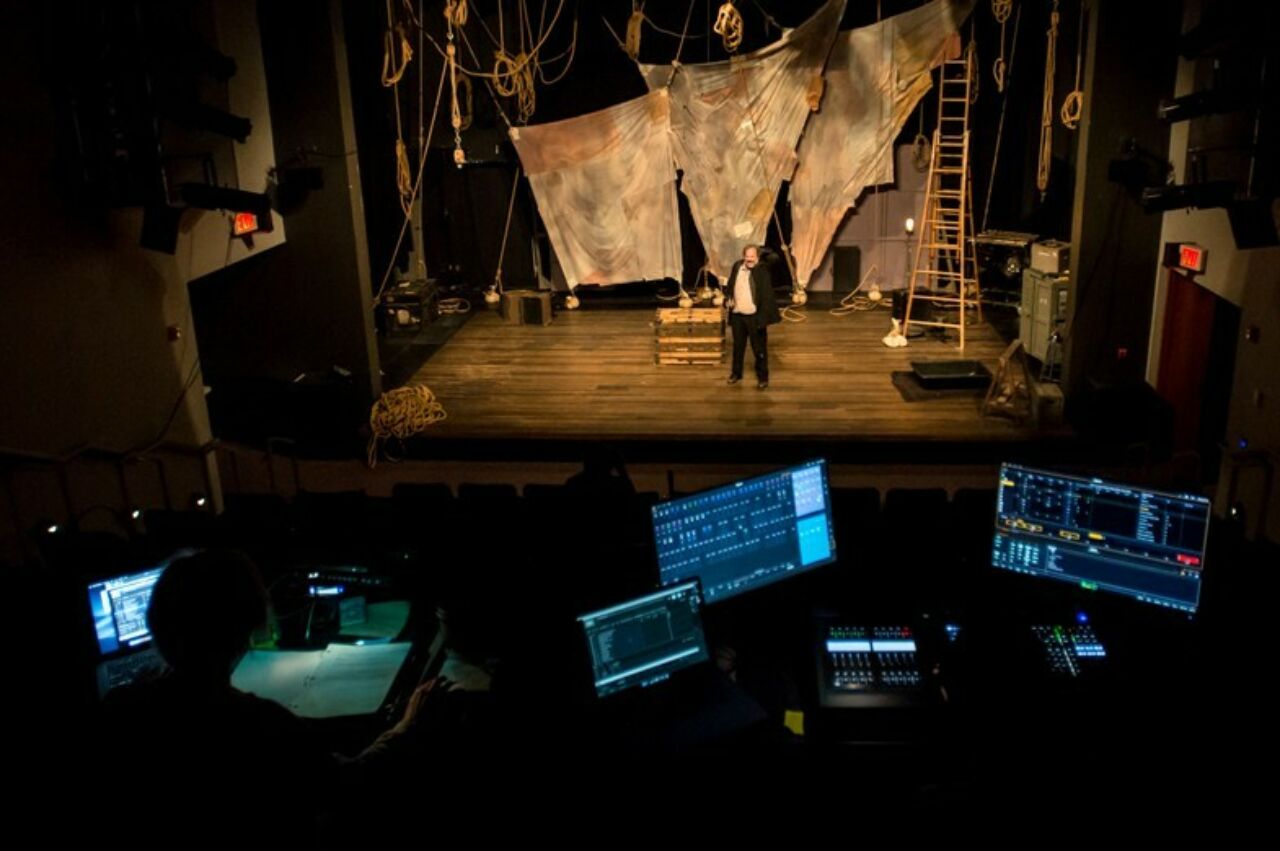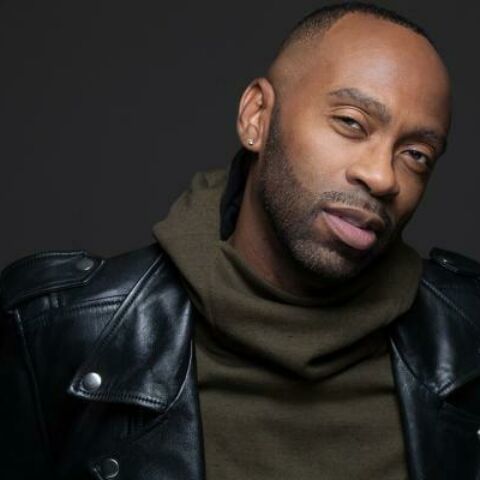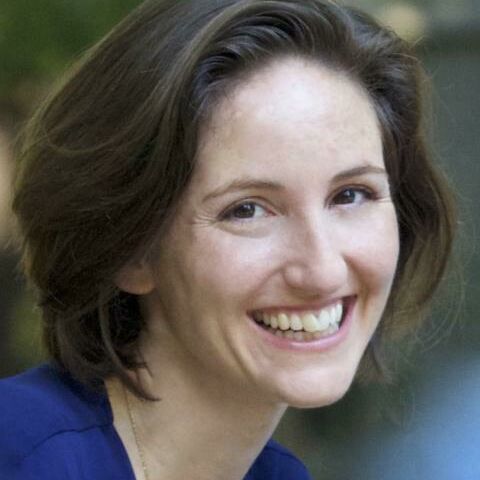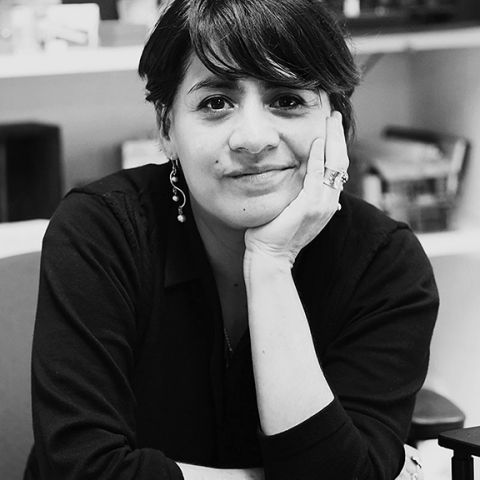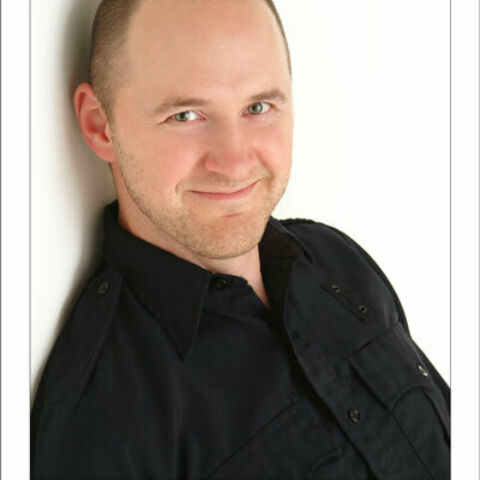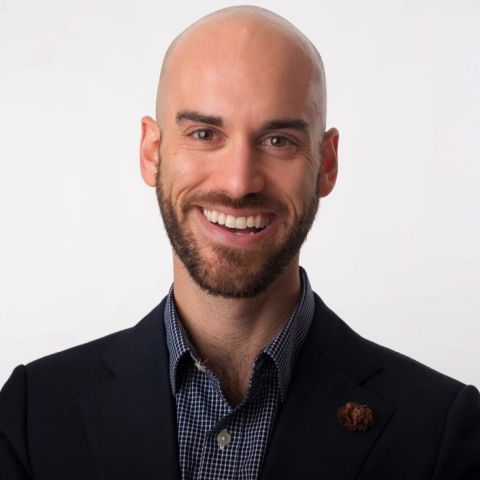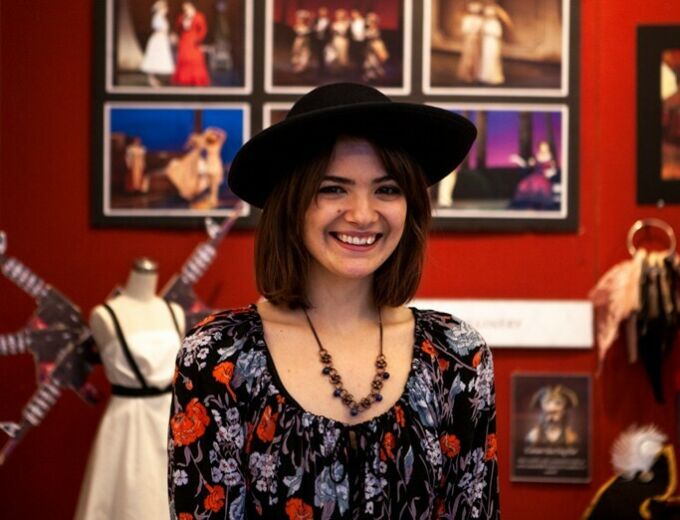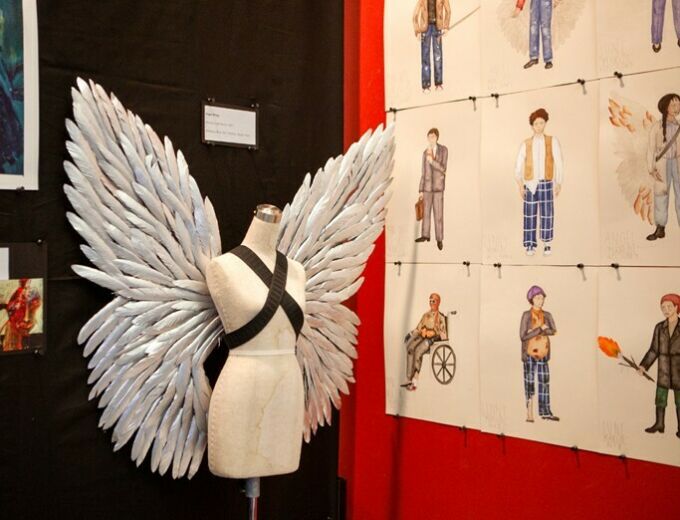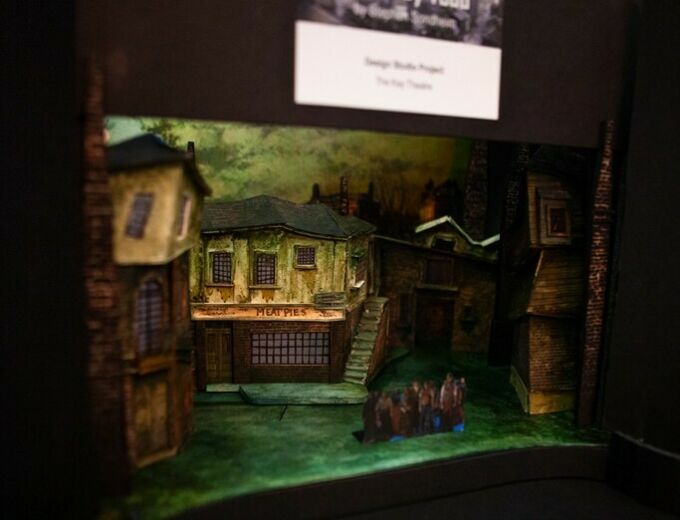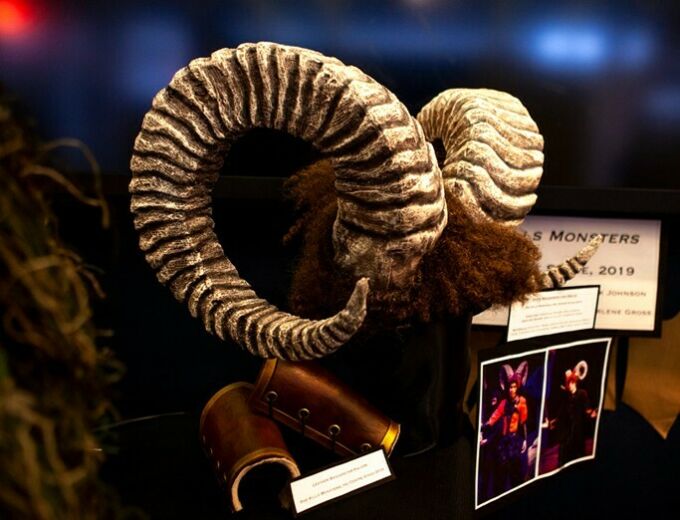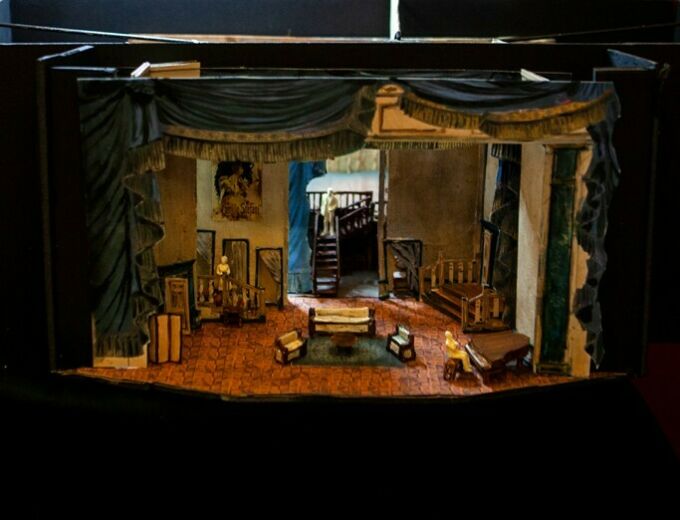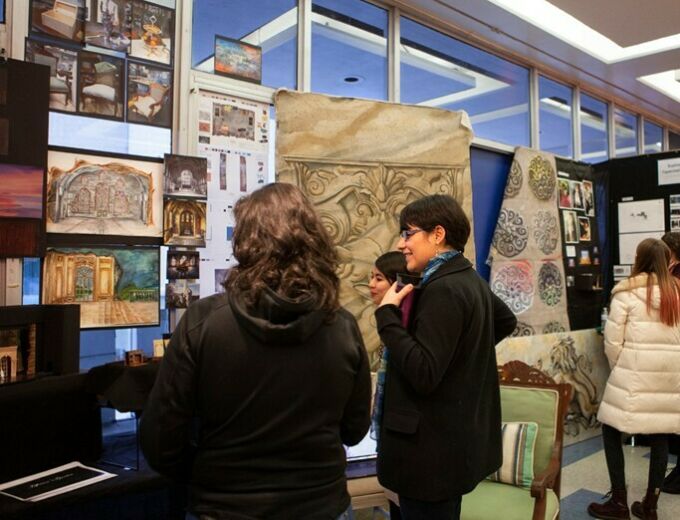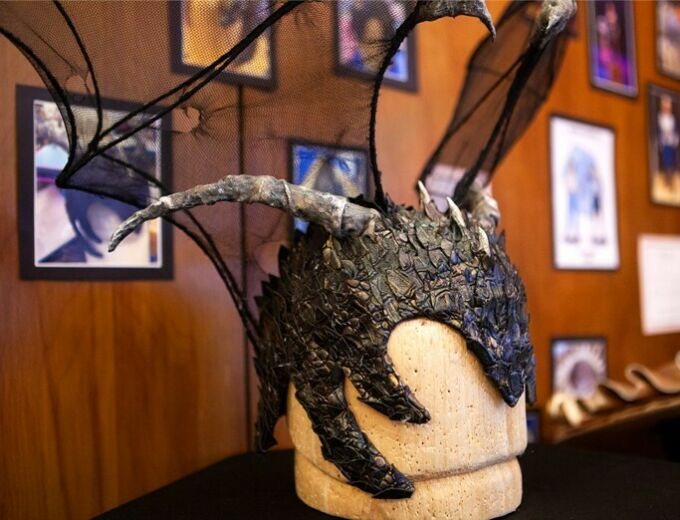Design and Technology
The strength of our design and technical programs lies in our students who are committed to growth, who accept challenge, and who are eager to perform in a program that encompasses both rigorous class work and demanding production experience. Students who leave Penn State with the M.F.A. degree are well prepared to launch their professional careers.
Students in design (scenic, costume) and technology (costume) have, as a common academic core, background and enrichment courses in theatre literature and production. In addition to intensive and extensive course work in the chosen area of emphasis, it is critical for the M.F.A. candidate to have sufficient course work in design and technical areas outside the area of specialization to ensure the capability of understanding and contributing to the collaborative production process.
Degree Options
SCENIC DESIGN
The Scenic Design option balances focused studio training with practical design experience. Students take course work in design and related graphic areas such as figure drawing, scene painting, 3D CAD, and presentation techniques, with particular emphasis placed on integrating contemporary digital techniques into the design process. Instruction in projection and digital media is also possible in our individually focused curriculum. Students also receive a strong core education in dramatic literature and theory, and period styles
The School of Theatre houses three theatres where we annually produce shows in a wide variety of dramatic styles and historic periods. Student design work is present in virtually all productions. Dan Robinson is the head of the program.
- Highly individualized three-year studio training in traditional and contemporary design presentation techniques
- Outstanding teacher/student ratio
- Mainstage design opportunities in area of concentration
- Collaborate with directors of diverse backgrounds and approaches, including professional guest directors
- Program is tailored to each student’s individual interests and abilities
- Career planning and preparation
- Course work and technical training available in disciplines outside of student’s main area of concentration
- Study in theatre literature, history, and pedagogy
- Focus on text analysis and applicable design responses
- Opportunities for teaching undergraduate classes in areas of expertise
- Full tuition and stipend for all admitted graduate students
COSTUME DESIGN
A studio setting supports the instruction of design with supplemental work in figure drawing, presentation techniques, computer graphics, website design, and the logistics of entering the profession. Design curriculum is enhanced by a rotation of costume technology classes, as well as a core education in dramatic literature and theory, and fashion history. Students work closely with faculty and guest artists designing and mounting their work in three distinctive theatrical venues supported by a professional staff. The flexibility of programming and personal faculty attention to each student allows the ability to explore areas of special and individualized interest. Richard St. Clair is the head of the program.
- Highly individualized three-year studio training and mentorship in traditional and contemporary design techniques
- Full tuition and stipend for all admitted graduate students
- Realized production and design opportunities in straight theatre and/or musical theatre
- Collaborate with directors of diverse backgrounds and approaches
- Every program is tailored to each student’s interests and abilities
- Outstanding teacher/student ratio
- Career planning and preparation all three years through close mentorship
- Training in both costume design and costume technology
- Study in theatre literature, history, and pedagogy
- Opportunities for teaching undergraduate classes in areas of expertise
COSTUME PRODUCTION
Penn States MFA in Costume Production is a specialized option that trains students to take the designers visions and create them in three-dimensional form. This professional degree synthesizes the abstract skills of design with the techniques of pattern and costume making and the challenges of the body in action. We offer foundational classes in flat pattern, draping on the stand, corsetry and false silhouettes, period pattern development, and couture sewing methods. Students are taught in a multi-year studio environment where newer students learn not only from their instructors but also their peers. This environment creates a community of support that our students take into the workplace when they leave. We stress collaboration and creative problem solving and promote self-reflection and development of sound process.
The program is rigorous with practical courses but also includes a significant component of literary and criticism studies including classes in Pedagogy, Dramaturgy, and Theatre of the Americas. It is the belief of the faculty that any student of the theatre, whether they are a maker or performer, benefits from a sound basis in research and critical thinking skills.
Finally, what sets Penn States program apart is its expertise in Menswear. Tailoring is stressed equally with dressmaking and our students learn proportional period patterning and construction methods for period menswear. This includes understanding of proper silhouette of different periods and how to achieve it, construction techniques for menswear from fall fronts to jodhpurs, and the proper fitting aesthetic for tailored clothes. It is our belief that a well-trained costume production student should be a multi-tasker; able to create a beautiful dress for the debutante but also tailor the suit for her suitor.
The program admits two to three students per year on an alternating year basis. For more information on this program including application process and portfolio requirements, please contact Laura Robinson, Head of Costume Production – lkr13@psu.edu
Degree Program Structure
Designers and technicians work closely with directors and actors in their corresponding M.F.A. programs. Collaboration is taught in the classroom and fostered in the production program
Each degree program is taught by professionally working faculty and is specifically dedicated to individual student development and professional training leading to employment. In addition to course work in the academic core and in emphasis-related classes, students are given challenging production assignments appropriate to their areas of interest each semester. Scenic, costume, and lighting designers are expected to design at least one major production in each of the school’s major production facilities: The Playhouse, a 450-seat proscenium theatre, the Pavilion, a 300-seat arena/thrust theatre, and the Downtown Theatre, a 150 seat jewel box proscenium theatre.
Production Opportunities
As audience members, our students have access to one of the oldest University-based performing arts series in the country, and as production students, they can work with professional touring companies in the 2,600-seat Milton S. Eisenhower Auditorium, the 900-seat Schwab Auditorium, or in the 16,000-seat Bryce Jordan Center, which hosts major rock concerts and large public events. Penn State’s public broadcast studio, WPSX-TV, may provide Penn State Centre Stage, a resident regional summer theatre on the Penn State University Park campus, offers employment opportunities to qualified students, who work with professional designers, cutters, technicians, painters, sound specialists, hair designers, and directors from all over the country.
Faculty
Practical experience and work with a professional faculty are strengths of the Penn State Theatre program. In addition, professional designers, technicians, and craftspeople are often brought in to augment faculty expertise. These visiting artists design productions, give lectures, conduct workshops, hold seminars, and sometimes design specialized portions of shows, such as sound and special effects. Whatever their mission, they always work closely with students, consulting and critiquing work in progress. Students work as assistants to visiting artists, gaining invaluable experience and contacts and the potential for professional work after graduation.
Facilities
The Theatre Arts Production Studios (TAPS) are among the most comprehensive teaching and production facilities in the country. They include classrooms, a rigging and automation laboratory, studios for scenery construction, painting, properties, a costume construction studio and costume stock. A sound and media convergence laboratory and lighting laboratory are housed across campus in the Visual Arts Building. The Theatre Building houses the Playhouse Theatre, acting and design studios, classrooms and a historic fashion archive. A major collection of historic lighting equipment is stored in Eisenhower Auditorium.
Professional Liaison
When M.F.A. students finish their programs at Penn State, they are trained practitioners with solid backgrounds combining experience and theory, ready to move into the professional theatre and the performing arts. Many have gone on to become nationally recognized in their fields. Among our graduates are Broadway and off-Broadway designers, designers in major commercial entertainment firms, design assistants, and technicians. Our students’ names frequently scroll on television and film credits. Graduates are in place as designers, technical directors, cutters, assistants, property artists, and painters in major regional and university theatres. The broader Penn State network includes working actors, directors, and producers trained with the same care and attention to professional development as are designers and technicians. In moving beyond the academy and into the larger world of theatre, Penn State graduates find a constant and growing professional resource in alumni and guest artists who have worked in Penn State theatres.
Admission
There are several steps that need to be followed in order to apply to our design program. First, we ask that you send us examples of your design work and a copy of your current transcript. This will allow us to get to know you and your work, and to determine if you are a good candidate for our program. The work that you send can be either print or digital such as a link to a webpage or a pdf or power-point portfolio. If we think you might be a good match for our program, we will ask that you come to campus for a visit. This give us a chance to meet you personally and to answer all your questions. You can also see our facilities, meet our current graduate students and sit in on some classes. We hope to provide as complete an experience of our program as is possible in order for you to determine if we are a good program for your own training goals. After the campus visit, if we both decide that Penn State is a good match for you, then we will make an offer for admission. We tell all prospective students to wait until you have our formal offer before you submit an application. This limits the cost of the application fee to only the students we would make offers to. There is no deadline for application as we will continue the process for as long as it takes to fill our available assistantships. For URTA candidates, the URTA interview takes the place of sending us a portfolio and transcript, as these are both part of the URTA interview process.
For more information contact:
Scenic Design:
Dan Robinson
Head of Scenic Design
School of Theatre
The Pennsylvania State University
116 Theatre Building
University Park PA 16802
(814) 863-8591
email: DIR2@PSU.EDU
Costume Design
Richard St. Clair
Head of Costume Design
School of Theatre
The Pennsylvania State University
116 Theatre Building
University Park PA 16802
814-863-6739
email: RHS18@PSU.EDU
Costume Production
Laura Robinson
Head of Costume Production
School of Theatre
The Pennsylvania State University
116 Theatre Building
University Park PA 16802
814-865-2684
email: LKR13@PSU.EDU

